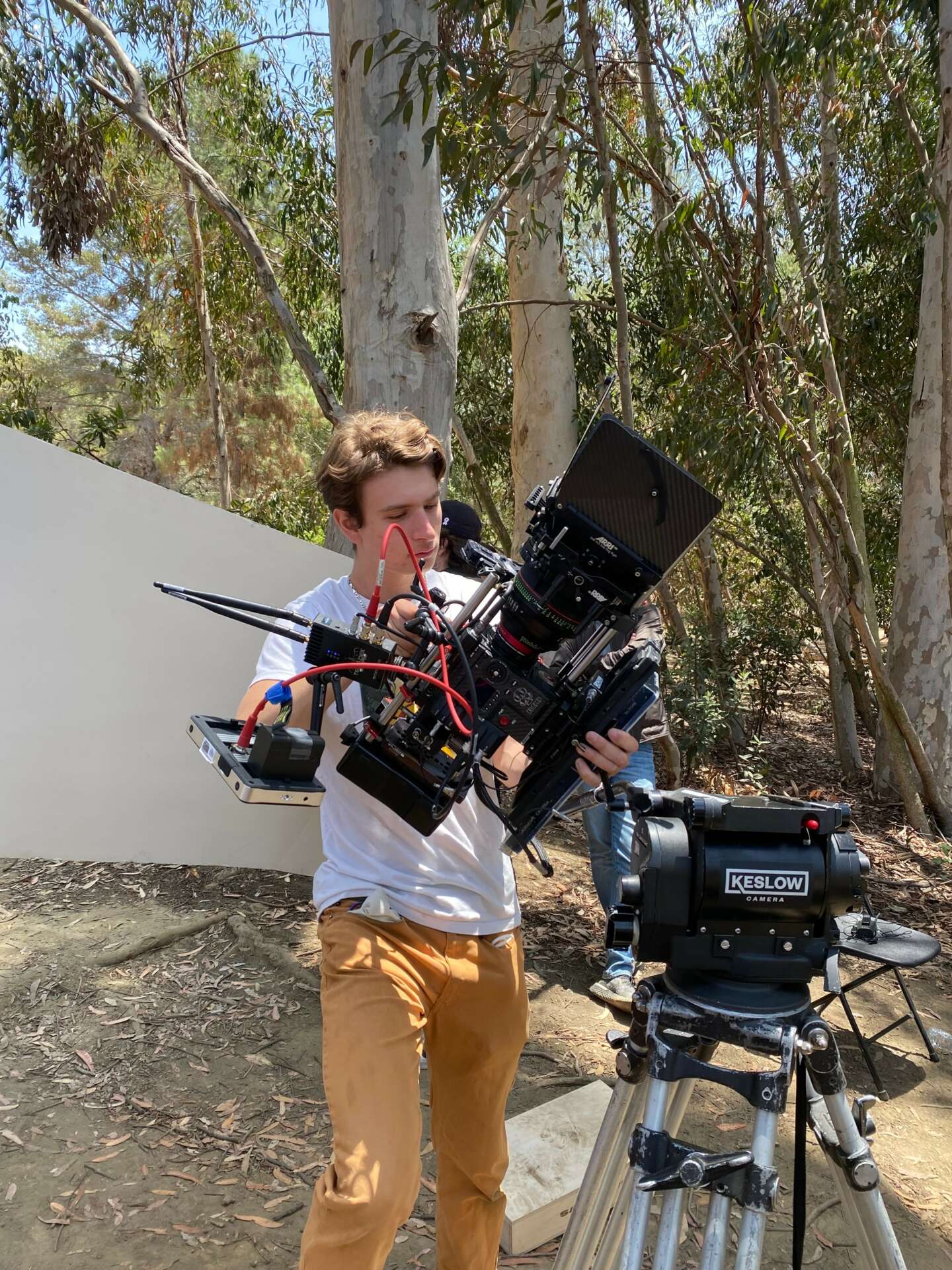Alright – so today we’ve got the honor of introducing you to Loren Blazek. We think you’ll enjoy our conversation, we’ve shared it below.
Awesome – so before we get into the rest of our questions, can you briefly introduce yourself to our readers.
In exchange for the time you’re taking out of your day to read this, hopefully, I can at least offer some fresh perspectives as a young filmmaker. Anyways, my name is Loren Blazek, and I am a cinematographer with an intense passion for visual storytelling. I feel I have a strong ability to articulate my vision for most creative projects, operating with a certain level of confidence, charisma, and thorough hands-on technical experience that separates me from other filmmakers my age. However, one thing that unites me with other filmmakers my age is our shared experience growing up with digital cameras in our pockets 24/7. Even before smartphones, as I kid I had access to digital cam recorders, and pretty soon, iPads with iMovie built into them. Not only that, but my generation has grown up with constant visual stimulation from the internet. We’ve grown up seeing everything our society deems as “serious” be parodied and satirized a hundred-thousand times over across social media. We grew up in a world of constant digital noise and a near-infinite, personalized, neverending stream of content. I believe all of these factors allow me to come into the movie game with a perspective wholly unique from any previous generation. Thus, the question is raised– how does one pierce through all the noise, to create something that still manages to hit an emotionally authentic core? This is something that I am determined to achieve as a cinematographer, director, and storyteller.
I feel as though I dove into the world of filmmaking (visual storytelling) the moment I picked up a pen as a seven-year-old and began drawing comic books. This turned into cam-recorded Lego stop motion, which became more elaborately edited films on iMovie, which eventually transformed into directing my first couple of short films and paid commercial gigs in high school. Now, whilst going to film school, I offer my services as a cinematographer to anyone that has a story they are truly passionate about, and is looking to find an equally passionate collaborator. Why cinematography you might ask? I have directed numerous short films, commercials, and music videos, but I’ve found that cinematography allows me to be more of a passionate collaborator, and focus on the aspect of filmmaking that gets my blood pumping the most– light and lens. Without these two factors, there can be no motion picture. To quote film director Alfonso Cuaron, “[cinema] masterpieces have existed without sound, without color, without a story, without actors, and without music. No one single film has ever existed without cinematography…” I look at filmmaking as painting a moving image with light. Everything is positive and negative light values; everything is a systematic grid of composition that can be either obeyed or broken. Cinematography is what produces the image that drills directly into your subconscious,causing you to identify with a character on the screen that may be vastly different from you. Thus, cinematography is a machine for compassion, this is why it is so important to me.
Right now, my focus as a cinematographer is mainly on music videos, as I see these as a way to use music to tell stories. I love collaborating with artists, connecting with the artistic intent of their work, and helping them express it in a visual medium. Whenever I hear a song I connect with, my imagination just naturally starts producing imagery. As a kid, I spent many long road trips just staring out the window with my earbuds in, listening to a favorite song, and imagining what the music video might look like for it.
I am also open to working on films and commercials, both of which I have previous experience in. In the past, I have worked for Chilk LLC, a boba tea company in which I was the head of video production. I have also been a video editor for a marketing company and directed numerous short films and freelance commercial work. Aside from directing and cinematographer, I’ve worked on film sets as a 1st AC, gaffer, camera operator, and key grip. Thus, I know the skillset it takes to work many different jobs ons et, and am better able to communicate and delegate with crew members because of this. Recently, I’ve been working for Peyote Pictures, an Indie production company specializing in music videos and commercials. Through them, I have found truly wonderful collaborators to work with. These are men and women who are unbelievably passionate about the craft of filmmaking. I’ve never found so many young people with as much drive to create as there are at Peyote Pictures.
So, if you’re a brand looking for a new visually striking commercial, a film director who needs a dedicated and driven visual collaborator, or an artist looking to bring the essence of their music to life through a truly cinematic work, please don’t hesitate to hit me up!
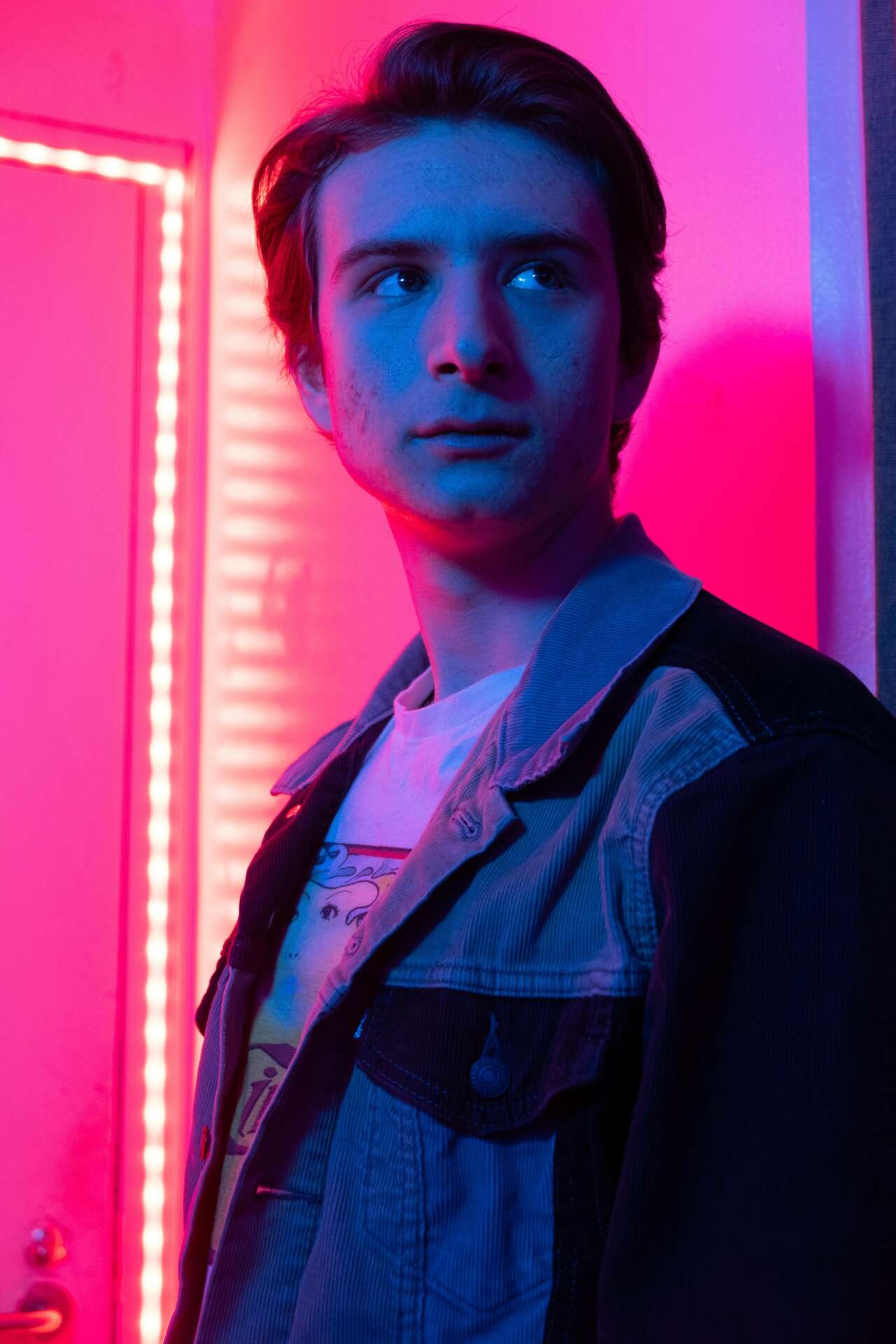
What do you think is the goal or mission that drives your creative journey?
My ultimate goal and mission is to use the power of cinema to spread compassion and tell original and gripping stories. I feel like this is the one thing I’m actually really great at, the one thing I was put on this earth to do. With that being said, there might be other skills I possess that I am not even totally aware of yet. I have a profound interest in architecture, history (particularly late-antiquity), politics, and illustration. I hope that cinema might be a way for me to explore all of these things and more. I can use filmmaking as a means of delving into whatever topic or subject matter might interest me.
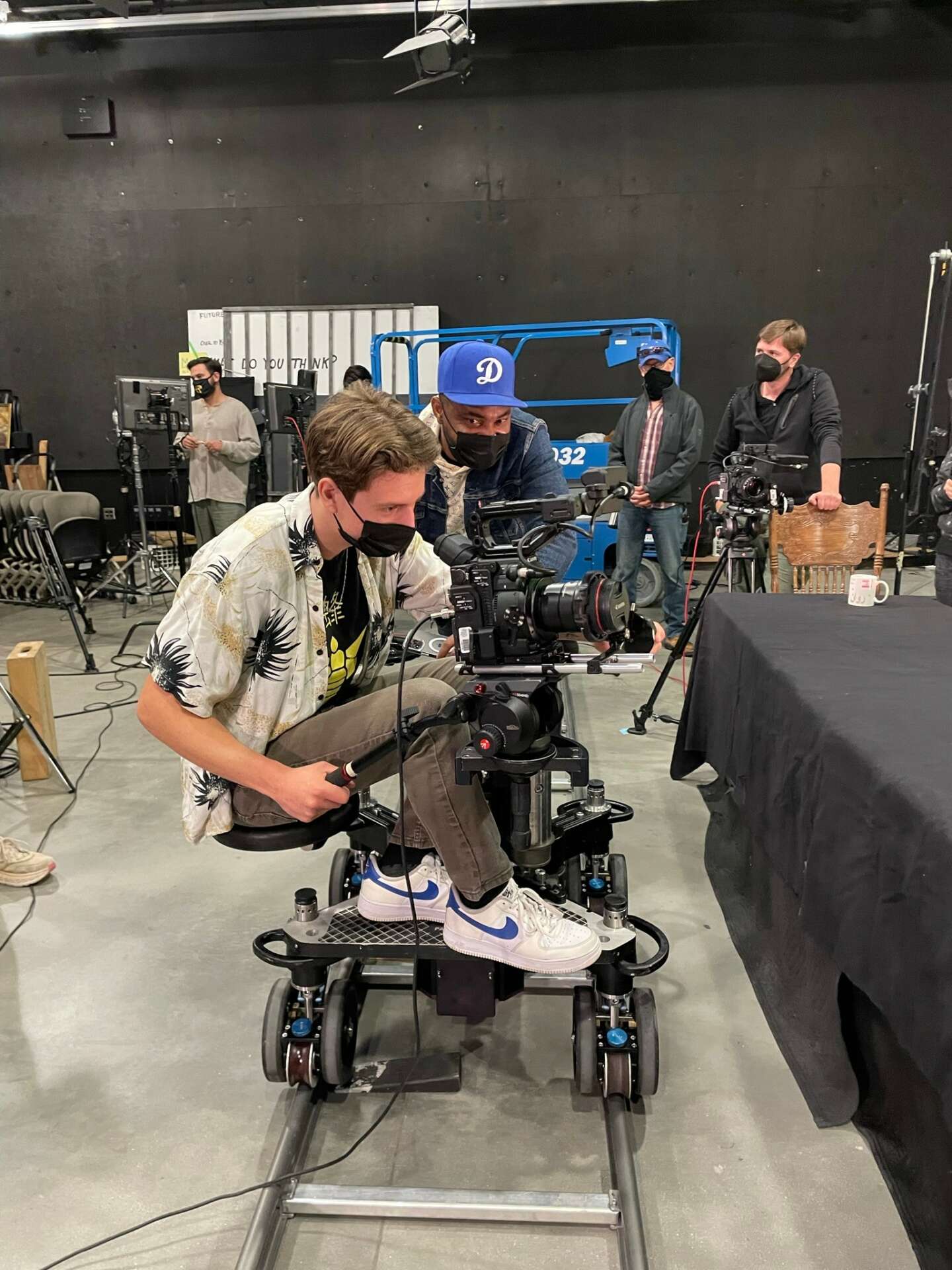
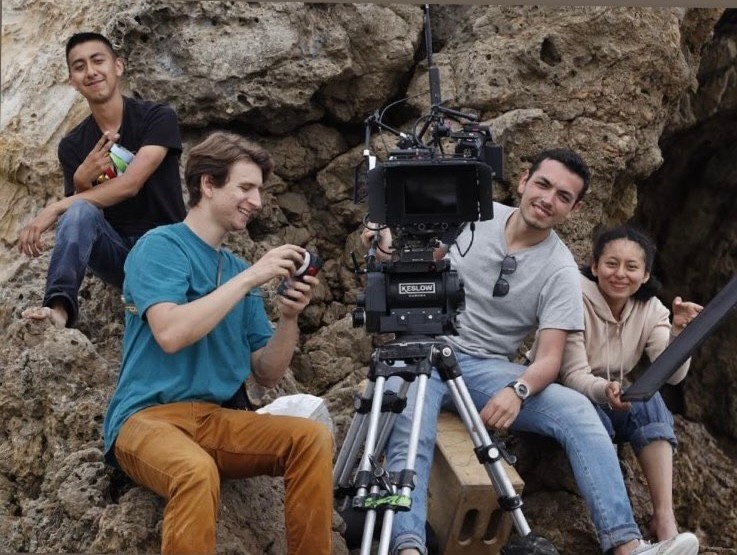
Alright, Loren thanks for taking the time to share your stories and insights with us today. We’d love to hear about one of the craziest things you’ve experienced in your journey so far.
I recently underwent a turbulent but surprisingly successful music video production experience that taught me the absolute importance of having a strong team, but also the crucial role that self-reliance plays as a leader. To an extent, I already knew the importance of a strong team, but after this experience, my perception of teamwork and collaboration was taken to a whole new realm.
For some backstory, the producers had hired me onto this music video project as the director. Tasked with putting together a crew, I was soon faced with the unfortunate reality that many of my frequent cinematographer collaborators were currently tied up with projects of their own. Thus, my eyes turned towards finding a new cinematographer (Director of Photography, or DP for short) with whom I could establish a strong collaborative relationship. During a brief album-cover photoshoot I was involved in, I was introduced to a talented young DP who was spearheading the photoshoot. We really hit it off and saw eye to eye on many aspects of the creative process within filmmaking. It wasn’t long before I had gotten them excited about the upcoming music video I was directing, and they agreed to come onto the project as my DP.
At first, everything seemed to be going smoothly. This new collaborator was punctual, communicative, and quite enthusiastic throughout the pre-production process. I had only met this person merely a week or two prior, but I already felt incredibly trusting that they would deliver on their promises, and was entrusting them without a lot of responsibilities. However, fast forward to only five days before shooting on the music video was set to kick off, and our whole crew received a vague text from the cinematographer, stating that they were busy with personal matters, and would “let us know when they return”. The producer and I tried to ask for clarification but to no avail. We all assumed he would respond soon to confirm whether or not they were still able to work on the project, but no such response was ever given. It wasn’t until just one or two days before shooting were set to begin, that we finally lost hope of receiving further communication.
The producer, 1st AD, and I all found ourselves scrambling to find a new DP. On top of that, we had to secure equipment rentals, a camera crew, and transportation of said equipment – all responsibilities that our original DP had been tasked with, but had now given us radio silence. Fortunately for me, I was blessed to have such a wonderful producer and AD, and they were able to secure all our rentals and camera crew at the last second. I don’t know what I would have done without such a wonderful core team, as they made up for the shortcomings of our DP who had disappeared. Unfortunately, finding a replacement cinematographer in such a last-second scenario was the hardest part of all. We were luckily able to find a backup DP, but they could only make it on the last night and a half of shooting.
Thanks to my team, I found myself on our first shooting day with all the equipment I needed, but no cinematographer. Thus, I basically had to become my own cinematographer. Throughout the day I directed the artist and actors, while simultaneously directing the camera and lighting crew as a cinematographer would. I had to give the camera crew F-stop and lens info, give lightning adjustments to the grip team, and overall craft each shot with a level of technical intimacy that only a DP would normally be tasked with. Furthermore, I had to do this all while ensuring that I was still being a director of my actors and most importantly the performing artist; tending to their needs and trying to bring the best performances out of them as possible.
To the people reading this, the whole experience probably sounds quite overwhelming and stressful. In some respects it certainly was, but the experience was also greatly liberating and empowering in a way that I did not foresee. Being a director and cinematographer at the same time showed me that I was capable of more than I thought I was. I didn’t crumble under all the pressure, and the shoot, fortunately, did not fall apart without a DP. Instead, I unlocked an extreme-multitasking part of myself that I was not even fully aware of.
However, the unlikely and resounding success of that day on set is not in any way only because of me. With the absence of a DP, I saw many other members of the crew step up to the plate so-to-speak. For example, my gaffer became one of the keystone positions that day, as he was tasked with holding the weight of many technical decisions that would normally fall onto the DP. Furthermore, I have nobody to thank more than the video’s executive producer, who helped secure crew positions and rental equipment at the last possible second, just when I thought all hope was lost.
In all, this crazy experience taught me just how important our fellow teammates are. Making a film with a dedicated crew is like going to war with a dedicated army. You have to have to put full faith and trust in the person next to you. In this situation, I was essentially faced with commanding without a key staff sergeant, because said sergeant had defected or was missing in action. I learned that trust, almost above all else, is the crucial key to creating a successful film or video. This experience taught me that when I find a collaborator I can trust, and is there with me through thick and thin (like my producer, gaffer, or camera operator), I need to hold onto that person and truly value them. The alternative is working with people who might breach your trust and faith when you least expect it. I also learned to never put too much trust and faith into a collaborator you have just met. It is easy to be blindsided by excitement and enthusiasm, which makes you want to see the best in everyone you work with. However, the reality is just that you never know, especially with someone you’ve only just begun getting to know. Thus, it is important for there to be “Checks and balances” of sorts on set. Responsibilities related to a film’s production should be more equally spread across the crew, so no one person becomes the crux of the film actually getting made. Don’t get me wrong, heads of department should still be trusted with command and responsibility, but my mistake was relying too heavily on someone I had just met with such a vast amount of the logistics and equipment needed for the shoot to actually happen.
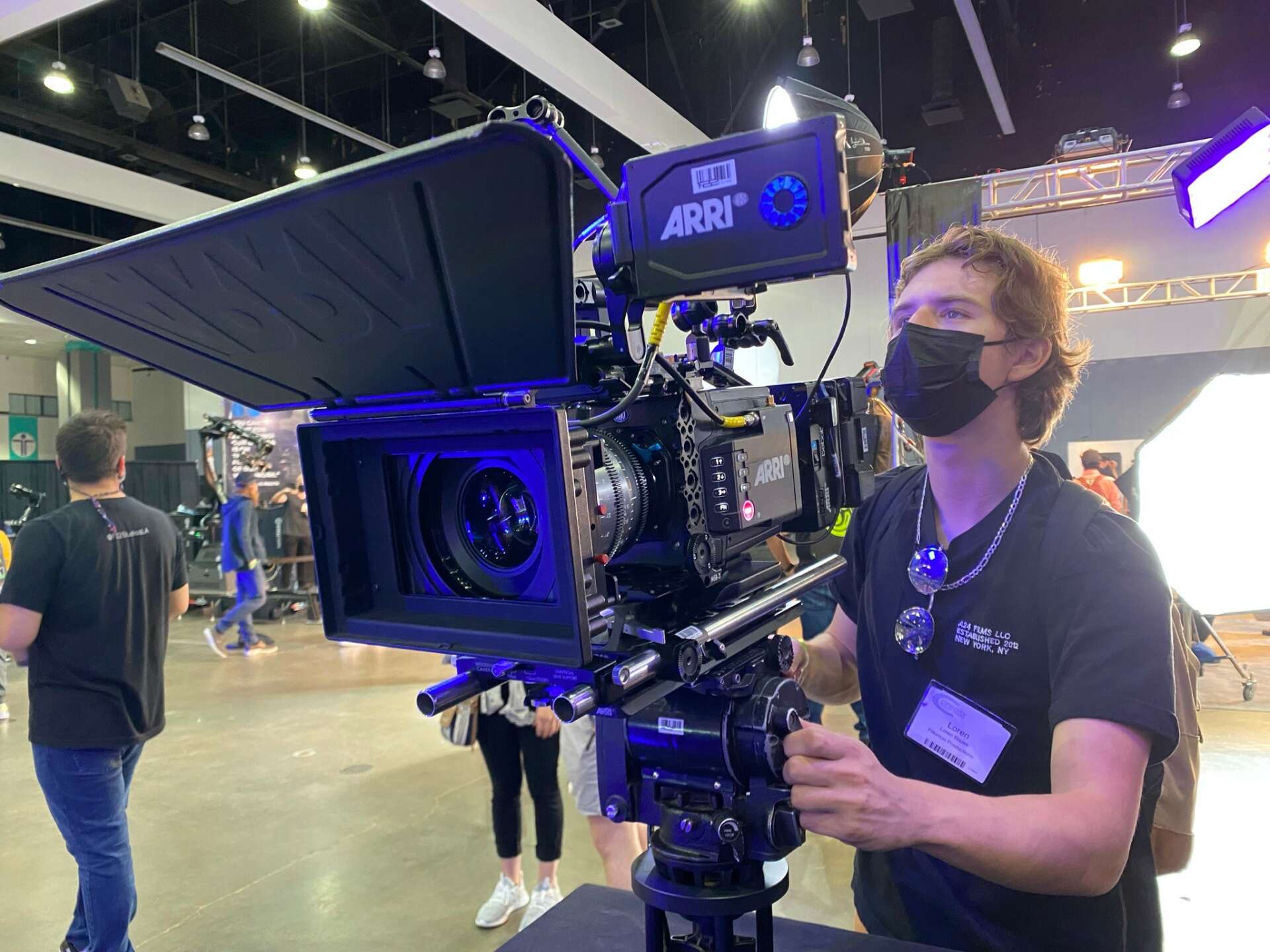
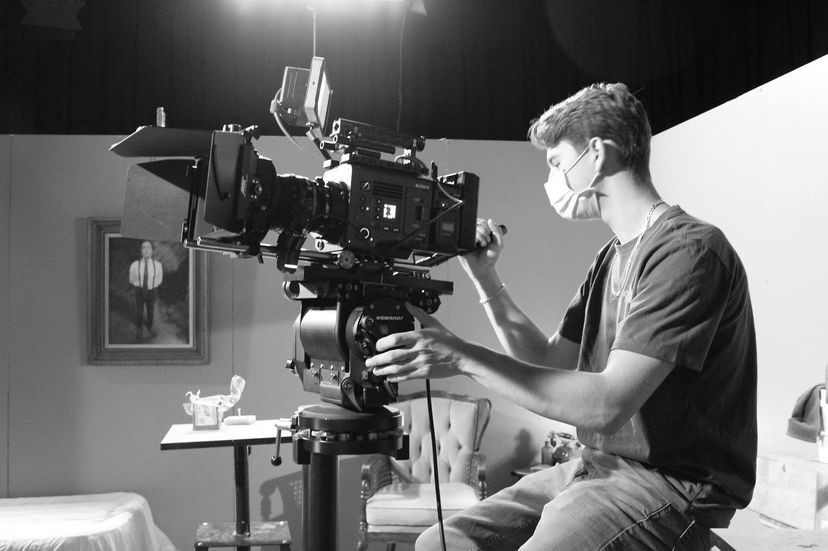
We’d love to hear about how you met your business partner.
One of my main business partners and most frequent collaborators is my producer George. Funny enough, I didn’t even meet in a film class, but rather a group communications/sociology class back when I went to Santa Monica College. What’s more, is that this class was not even in person, the first time I ever saw George was through a low-resolution zoom screen. Even over zoom though, we immediately hit it off, and it was clear we shared very similar goals and passions within filmmaking. It wasn’t long before George invited me to work on a music video. Soon, I became a regular member of his production company, Peyote Picutres, and the wrest was history. What I really like about working with someone like George is that he is much more logistically minded than me, while still sharing similar creative goals. He is always willing to put his faith in my vision for a project, and for that I am incredibly grateful.
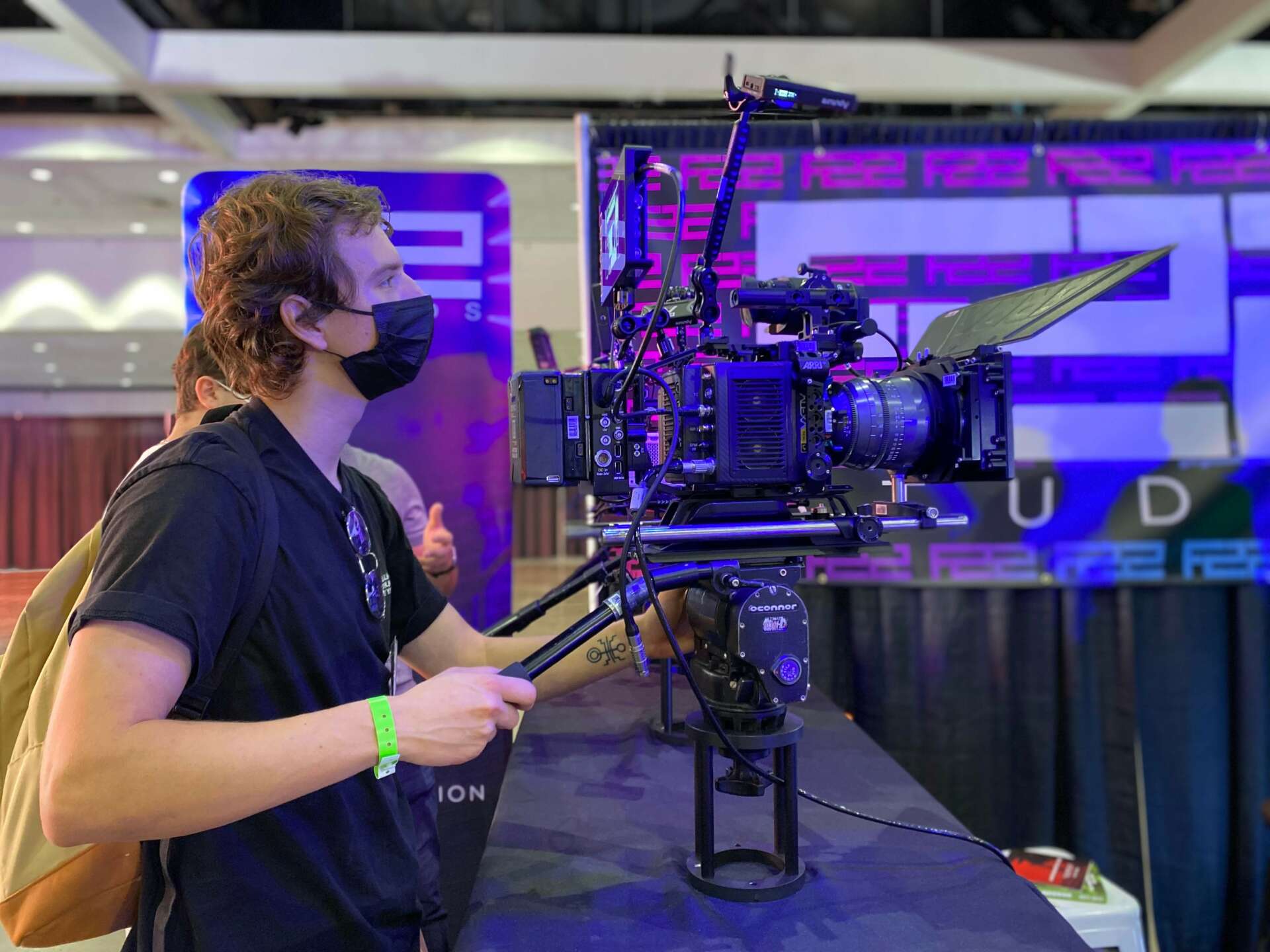
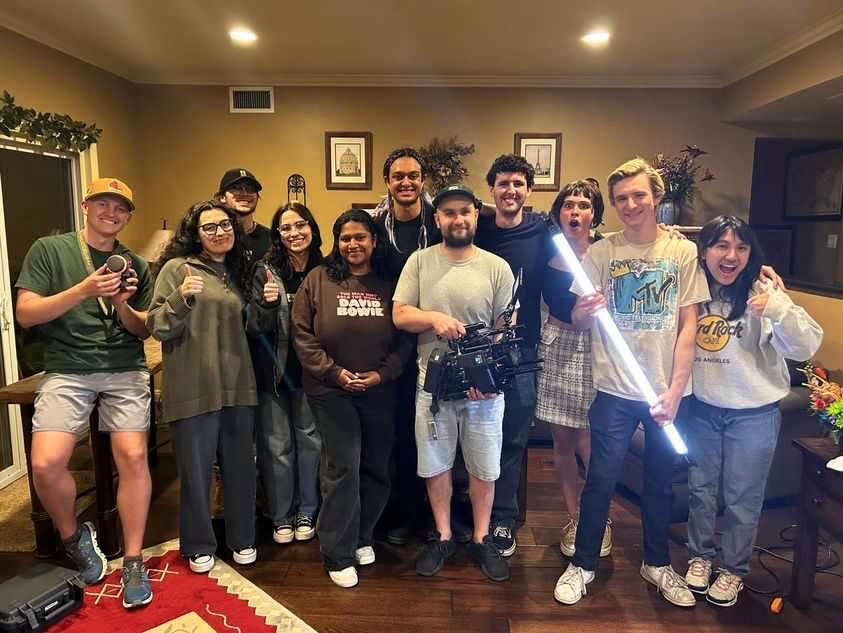
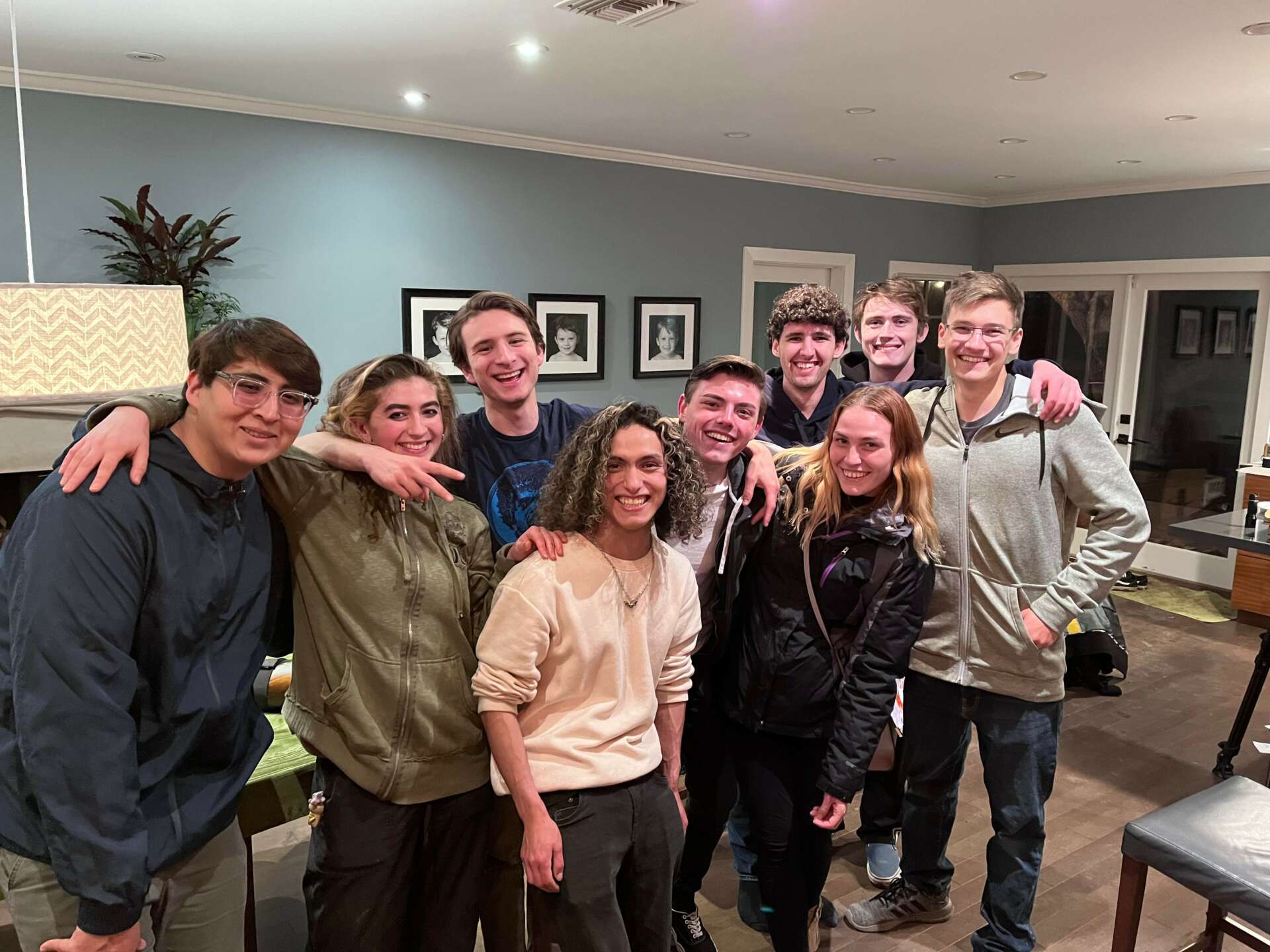
Contact Info:
- Website: https://peyote.pictures/
- Instagram: https://www.instagram.com/loren_sauce/
- Linkedin: https://www.linkedin.com/in/loren-blazek-4a8722213/
- Youtube: https://youtube.com/playlist?list=PLVqVyDMcJo-wM-kFZUZx0FdcL_f2Tr60E&si=u0KpcfouZvmu6ikX
Image Credits
I certify that I have the rights to all of these images.


